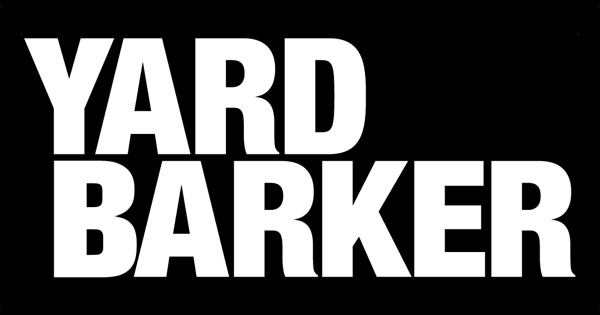By Guest Writer
Copyright euroweeklynews

Everyone has hobbies, interests, and activities that they would always rather be doing, but what of the wider picture? Things become particularly interesting when we step back from the granular details and the finer points and consider instead the key trends and movements. It’s by doing this that we can come to understand who we are as people and what it means to live in Europe in 2025. To guide you through the key lifestyle trends in 2025, we’re going to approach things by looking at the prevailing sentiments and points of view in more detail.
The emergence of personal health tracking
Woop, FitBit, Apple Watch, and a whole host of other pieces of wearable tech will claim to be able to help you boost your health and fitness from the moment you put them on, and consumers are voting with their wallets. Smart watches in particular have become increasingly common mainstays of European life, particularly amongst professionals and young parents who want to manage and maintain their energy levels. More and more people are waking up to the idea that your health is something that you can take control of long before you find yourself unwell in hospital. Innovators like Gary Brecka and his Ultimate Human Protocol have been gathering a large amount of attention in recent years, and with good reason. By showing normal people that they can take control of how they feel by going back to basics with things like sunlight exposure, daily exercise, and a shift back towards the whole foods that our ancestors would have eaten, people like Brecka are changing minds at scale.
Many Europeans now see it as cool or trendy to track their health and pay attention to how they are feeling in a way that earlier generations, who focused purely on the weight they saw on the scales, did not. This is one of the main drivers of the shift towards eating less meat and drinking less alcohol that is being seen across several demographics.
Chasing better work-life balance
Europeans are waking up to the idea that they can have it all if they focus more on themselves and how they are feeling. Options such as being able to work from home on a Monday and Friday are all about restoring the balance between work and family life, with children set to benefit as a result.
While there will always be manual jobs that cannot accommodate such changes to the traditional schedule, many in the professional class are embracing their newfound options. Having more free time and more energy with which to enjoy that additional time is something that opens the doors for more people to try new things and embrace new hobbies.
Greater interest in digital gaming
Digital gaming has been big business with certain demographics for a generation, but it’s only now, with the latest generation of smartphones, that it is really becoming mainstream in every quarter. You no longer have to own a console and devote your lounge TV to playing games if you don’t want to. Mini-game style titles like Angry Birds have made it possible to enjoy a viral game that your friends are playing with nothing more than your phone and an idle couple of minutes on your lunch break at work.
The large number of titles being developed specifically for mobile devices means that potential players of all ages can be targeted by developers. Genres such as quizzing, puzzles, and long-term strategy games appeal to different sections of society and bring more and more people into the digital gaming space. Not only that, but there are now obvious crossovers between the gaming world and other parts of the digital landscape, with options such as Bitcoin gambling roulette, and picture-in-picture displays of watchalongs being just two examples. It’s this diversification and hybridisation of media that is really helping the digital gaming sector to continually gain momentum.
The robust growth of social sharing
Social networks used to exist as largely independent communities that you would then take your photos to, so that you could upload and share. What’s interesting today is that if you want to share something with your friends and followers, you will often find a link embedded in the site you are looking at. Sharing sites like Bitcasino or showing your friends the latest season of YOU on Netflix is now as easy as tapping a single button. No longer do you have to clumsily copy and paste links, work them into posts, check the thumbnail previews have imported correctly, and so on.
Social sharing of this nature has become a natural extension of social media, and one that ensures we are able to embed our social profiles even more into our lives. By making sure that we can share new things with our friends, these options help conversations and threads flow more naturally than ever before. The ever-deepening integration of the digital and real worlds is something that is certainly having a profound impact on life in Europe right now.
A shift to localism
Changing course from the previous point, we see that not every development in life choices in 2025 is focused on global connections and seemingly infinite reach. In fact, the shift to localism is taking things in exactly the opposite direction, all in the name of saving local industry and spending time and money in our immediate environment.
For some, localism has a strong environmental focus to it — it is far better for carbon release to buy strawberries from a local farm than it is to drive to a supermarket and buy fruit that has been shipped halfway around the world, for example. There is also an economic angle for many people, not least of all because they want to save local shops and eateries at a time when giants like Amazon and Uber Eats are looking to aggregate everything we do into a handful of all-reaching portals.
A renewed focus on green choices
Following closely from the previous point is a renewed focus on the environment through the small choices that many of us make every single day. Reusable bags rather than disposable bags, electric bikes for commuting rather than cars, and the rise of sites like Vinted that push the benefits of pre-loved clothes, books, and toys. The key point here is that more and more of us are waking up to the potential impact of the large number of seemingly unimportant choices we make during the course of our day.
Countries like the UK have banned the sale of plastic straws in many eateries, for example, while other countries are focusing heavily on pushing hybrid and electric vehicles. The point is not that any one choice trumps all of the others, but instead that a more eco-conscious approach across the board is what can make a real difference when we all join together and start pulling in the same direction.
Final thoughts
The beauty of diving into lifestyle trends and thinking about them in detail is that it gives us new ideas and insights into how things may evolve in the future. By taking your time to think through the ideas above, you could find new ways to live your life, different viewpoints, and alternative ways to view the world. Put all of them together and you get a much clearer picture of life in Europe and how it is set to change and evolve in the latter half of the present decade.



